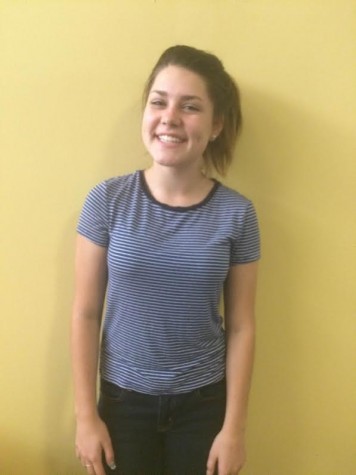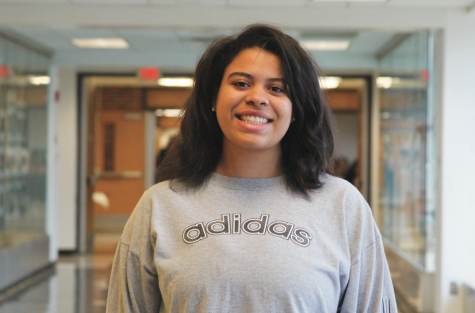Speaking in Sign
Freshman discusses her experience with speaking sign language

Most people have spoken a part of sign language. Whether they just learned how to sign their name to look cool or they took a class that they quickly forgot after, freshman Mikayla Enyart has been speaking in sign since before she even knew how to talk.
She’s been speaking it her whole life so she is able to communicate with her deaf father.
“I think it’s actually pretty cool,” Enyart said. “It surprises a lot of people, and it opens up people’s eyes and reminds them that there are other people in this world that might not be able to speak the same language as them.”
Enyart said everyone should learn it or at least a small portion of it.
“You never know when it can be used in an everyday situation,” Enyart said. “You can make someone’s day by speaking it because sometimes a deaf person will only see one or two people a day that speak sign, and it can make them feel better.”
She’s even been given special treatment from knowing how to speak it, Enyart said.
“One time I got into Silver Dollar City for free,” Enyart said. “If you’re handicapped in any sort of way, you can go in for free. [Since] I was with my dad, I got in.”
She has been speaking it her whole life but it still has some challenges, she said.
“It can be hard sometimes because I’m not on the same level as a lot of deaf people, even though I’ve been speaking it my whole life,” Enyart said. “It’s kind of hard signing at the same level as them and it takes me awhile to think about what motions to sign.”
Enyart said it’s gets on her nerves whenever people find out that she knows how to speak sign because people tend to treat her differently.
“A lot of people actually think it’s cool,” Enyart said. “They almost always want me to sign their name, but it gets pretty annoying. I learned it for my dad, not so I can sign people’s name every time they ask.”
Some people act differently towards her when they see her signing it in public.
“I actually have [been treated differently in public for speaking it] because people think you’re deaf when you start to sign, and they’ll try and talk louder to me or they try to signal to me because they automatically think [I’m] deaf,” Enyart said.
She said she often has to deal with the way people act toward her when they find out she can speak it.
“I feel like it brings a certain sense of family to the people who speak it,” freshman Julianna Burriss said. “They have to use a different way to communicate than others do and they have to be patient while the other people are learning.”
Burriss said she learned to speak it, although only small phrases, and now she can communicate with Enyart’s dad.
“I’ve learned that people are still people even if they can’t hear in the same way you do,” Enyart said. “They aren’t stupid or any different than everyone else. It just shows that if someone can’t hear, they aren’t less capable than doing everything else a hearing person can do.”

Courtney Brown is a junior staff writer for “The Tiger Print. In her free time, she works at Twisters and listens to music in her Nissan Altima. After...



